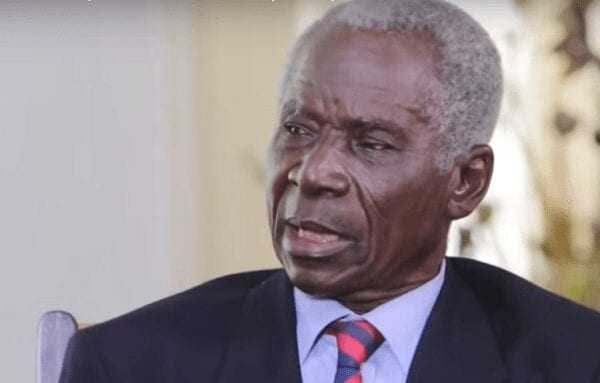Brigadier General Nunoo Mensah Criticizes NDC’s Free Tuition Promise and Education Policies
Former Chief of Defense Staff, Brigadier General Nunoo Mensah (Rtd), has raised significant concerns about the National Democratic Congress (NDC) administration’s promise to introduce free tuition for first-year tertiary students. Speaking at a stakeholder engagement at O’Reilly Senior High School on January 15, he questioned the need for the government to fund tertiary education and argued that parents should bear the financial responsibility for sending their children to university.
“Parents Should Pay for Tertiary Education”
Brigadier General Mensah expressed doubts about the necessity of government-funded tertiary education, arguing that it should be a personal responsibility. “Why pay for them? What is the essence of tertiary education? What is the use? If someone wants to go to tertiary education, the parents should afford it because you don’t need them anyway,” he stated. He further criticized the current system, suggesting that even after completing tertiary education, many graduates struggle to find jobs, questioning the real-world value of a degree.
In addition to his concerns about free tertiary tuition, Brigadier General Mensah also criticized the government’s Free Senior High School (Free SHS) policy, stating that the universal implementation of the policy has created resource shortages, including food shortages in schools. He suggested that instead of making education entirely free, the government should have encouraged parents who could afford to pay for their children’s schooling to do so. For those who couldn’t, he recommended applying for scholarships.
“It’s a wrong policy,” he remarked. “They should have encouraged parents to pay. Those who cannot pay should have applied for scholarships.”
A Call for Targeted Educational Support | Brigadier
Brigadier General Mensah’s comments come amid growing debate over the sustainability and long-term effectiveness of Ghana’s educational policies. His critique emphasizes the need for targeted support that benefits those most in need, rather than offering blanket policies that may strain resources and limit their impact.
He also shared his plans to voice his concerns directly to President John Dramani Mahama, stating that while he may not be heard due to his position as a non-politician, it was important for him to express his views.
Conclusion: Reassessing Ghana’s Educational Policies
Brigadier General Nunoo Mensah’s remarks contribute to an ongoing discussion on the sustainability and effectiveness of Ghana’s educational policies. His calls for a more targeted approach that ensures adequate support for the underprivileged echo concerns from many who believe that a one-size-fits-all policy may not be the most effective path forward. As these debates continue, it’s clear that a thoughtful approach to Ghana’s educational future is essential.



